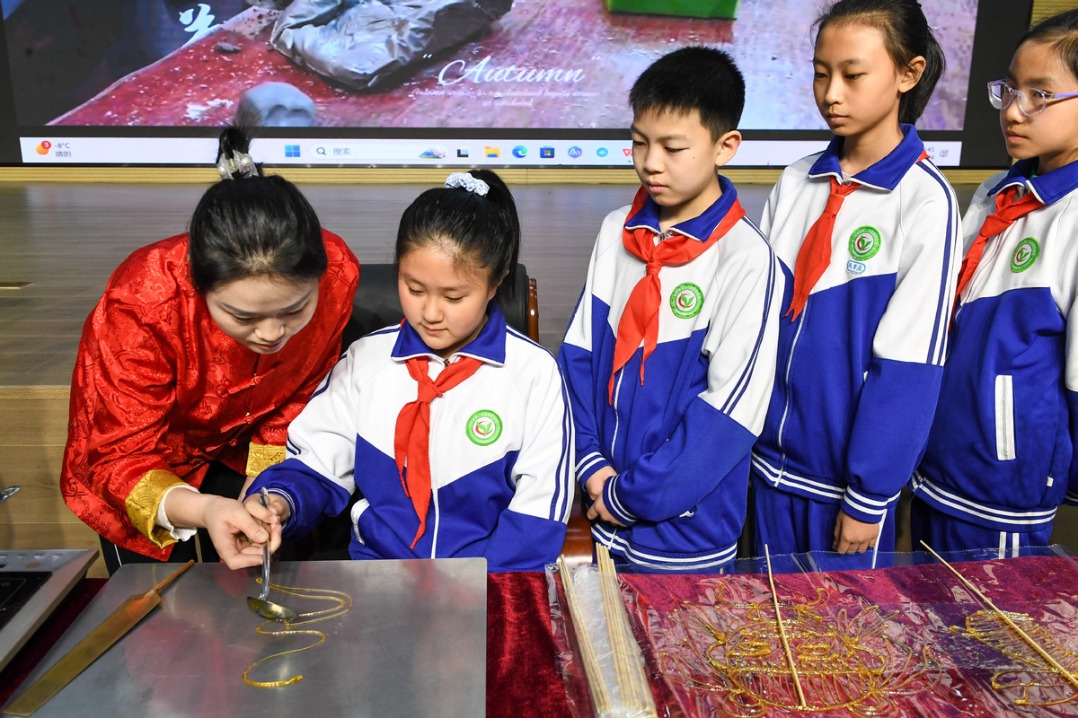How to say goodbye in Chinese: your vocabulary list 用中文说“再见”
hackchinese.com 2023-11-09 16:41


We are sure you already know the most common way to say "goodbye" in Chinese (再见; zài jiàn), but what about other phrases? Are you looking for ways to end conversations with a bit of nuance and variety?
This article will help you learn Chinese vocabulary for saying goodbye so you can be prepared to close off any conversation you have in Chinese.
How to Say Goodbye in Chinese: Casual and Informal Expressions
So, how do you say goodbye in Chinese?
The most common Chinese word for "goodbye" is "再见," pronounced "zài jiàn."
To give some satisfying closure to even the most casual conversations, you should know how to say goodbye in Chinese informally in a variety of ways. The phrases below should help you out in most situations.
再见 [zài jiàn]
This quite simply means "see you again" and is the most common form of saying "bye."
拜拜 [bài bài]
This is "bye bye" in Chinese. It has been adopted from the English "bye bye" and has become a popular way of saying goodbye.
(有空)再会 [(yǒu kòng) zài huì]
This phrase literally means "meet again," conveying the sense of "until we meet again." It's suitable for expressing a slightly more sincere Mandarin goodbye.
再联系 [zài lián xì]
This phrase is slightly different from "(有空)再会." "再" means "again" while "联系" means "contact." As such, this phrase means "let's keep in contact" or "let's stay in touch."
照顾自己 [zhào gù zì jǐ]
When saying bye in English, we sometimes say "take care." In Chinese, this is translated as "照顾自己" (zhào gù zì jǐ). If you want to be even nicer, it's also common to say "好好照顾自己" (hǎo hao zhào gù zì jǐ), meaning "take good care of yourself".
一会儿见 [yī huǐ er jiàn]
This phrase means either "see you later" in Mandarin or "see you in a while."
明天见 [míng tiān jiàn]
This useful phrase means "see you tomorrow." It's easy to say and good to use when you know you'll see someone again the next day.
周一见 [zhōu yī jiàn]
You might use this phrase to say goodbye when it's the weekend. It means "see you on Monday," though "Monday" can be swapped out for almost any day or date.
Here are some more examples:
一会儿见 [yī huǐ er jiàn ] "See you in a while."
明天见 [míng tiān jiàn] "See you tomorrow."
下午见 [xià wǔ jiàn] "See you this afternoon."
下周见 [xià zhōu jiàn] "See you next week."
我不得不说再见了 [wǒ bù dé bù shuō zài jiàn le]
This phrase translates to "I've got to go." It conveys friendliness and warmth, but it doesn't necessarily sound polite or formal. It's kind of like when you tell your friends, "listen guys, I'd really love to stay, but I've got to go."
挂了啊 [guà le a]
Use this phrase to end a call in Chinese. It means "I'm hanging up!"
In more formal situations, you should know how to say goodbye in Chinese politely. These expressions will help you navigate the special occasions that call for them.
告辞 [gào cí]
This is a formal announcement of departure. Literally, it means "I'm leaving."
失陪了 [shī péi le]
This very polite phrase translates to "sorry for leaving." It's the most formal way of saying goodbye. This is a phrase you technically could use with your friends, but it would feel like you're trying to use it ironically or humorously because it's so polite and formal.
Literally, "失" (shī) means "to fail" or "to lose." "陪" (péi) means "to accompany." Together, they express something like "excuse me, but I must be leaving now."
A closely related phrase, "失陪一下" means "excuse me, but I must leave you for a while."
保重 [bǎo zhòng]
This phrase means "take care" and is an important phrase to use before someone departs on a journey or otherwise goes off for a while.
To express a lovely farewell in Chinese, combine "保重" with "一路顺风" (yī lù shùn fēng), which means "may the wind be with you".
我先告辞了 [wǒ xiān gào cí le]
This phrase translates to "I must leave first." It's a very standard and polite way to take your leave in social settings. Its level of politeness almost implies that you're saying "pardon me."
祝你今天愉快 [zhù nǐ jīntiān yúkuài]
"Have a nice day" is not a common sentence in Chinese, but this phrase can function similarly. When you translate "祝你今天愉快" word for word, you get: "wish you today happy."
Alternatively, you can say "玩的开心" (wán de kāi xīn; "have fun") or "祝你愉快" (zhù nǐ yú kuài; "I wish you happiness"), and you'll sound more like a native.
晚安! [wǎn ān!]
Last but certainly not least, this useful phrase means "good night!"
Source: hackchinese.com
Editor: wanwan

















 英语点津微信
英语点津微信 双语小程序
双语小程序